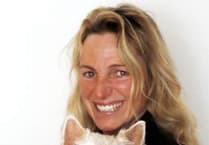I was on a bus the other day, to and from the centre of Cheltenham from the wonderful new Arle Transport hub on the edge of the town, which I mentioned in an earlier ‘Forest View’.
As I showed my bus pass to the bus driver, I was reminded of the demise of an essential worker in the public transport industry many years ago. There used to be a ‘bus conductor’ who would issue tickets, encourage standing passengers to ‘move along inside, please’ to allow new passengers to board, and who was the only person allowed to ring the bell. The driver would be in a separate cabin, concentrating on driving and only responding to the conductor’s bell or to prospective customers waving to them at bus stops.
And there were other essential transport workers like police officers on ‘point duty’. These point duty officers had a series of signs that drivers had to learn, and in Gloucester these officers would direct traffic at the confluence of North, South, East and Westgate Streets, now a traffic free zone at this strategic point which had been the heart of the city’s traffic since Roman days. The northern bypass has diverted traffic away from the centre of the city, and in the Forest bypasses have eased traffic congestion at Lydney and Newent. Even at St Briavels, the Barrelwell Lane development has eased some pressure on the ancient castled centre of the village. Before the two Severn bridges were constructed, if you were driving to Bristol, to avoid the extra mileage and congestion involved in going through Gloucester, you would have to take the ferry at Beachley to Aust.
Bus conductors and congested cities have gone the same way as telephone exchanges, paper boys and girls, coal merchants, hat-wearing, and telephone kiosks actually used for telephoning. There were rag n’ bone men in the early days of recycling. ‘Any old iron? Children would have to provide coupons to buy their sweets in those last days of post-war rationing, and enjoyed innocent pastimes like conkers, marbles, and skipping.
Televisions were a luxury, and there were some people who would put up a television arial on the roofs of their houses even when they didn’t own a television, to avoid the shame of being unable to buy one. BBC was the only TV channel until ITV reared its commercial head. Broadcasting on TV was restricted to a few hours a day, and at the end of the day’s programmes the national anthem would be played and the ‘test card’ presented to viewers for the following 15 hours or so. Around that time, after the main evening news the BBC presented a light hearted take on the news, a programme entitled ‘Tonight’ presented by Cliff Mitchelmore and John Morgan, from Mork, near St Briavels.
And if you live in the central Forest and if you listen carefully, in early morning or late evening, you may still hear the ghostly sound from long ago of puffing trains and miners’ boots on their way to the Forest coal mines.



